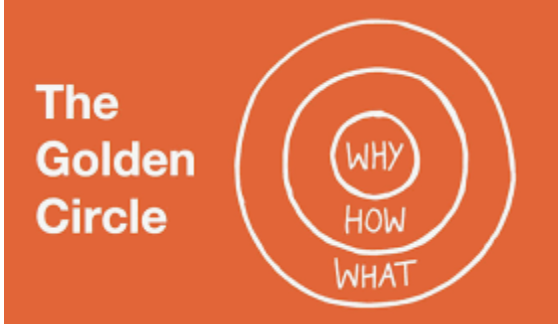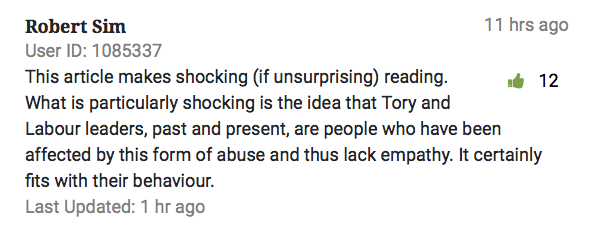
One more brief THREAD on the autism study released today that is all over the news. See the piece released by @BBCNews ? See the chosen pic of a mum & baby playing peekaboo? How ironic...because...
bbc.co.uk/news/health-58…
bbc.co.uk/news/health-58…
2. ...in 2018, researchers at Birkbeck college showed that this is precisely the sort of 'behaviour' or 'signal' or 'symptom' or 'precursor' (call it what you want) that suggests a child might 'have' autism or 'be' autistic. (Even that language matters.)
bbk.ac.uk/news/babies-re…
bbk.ac.uk/news/babies-re…
3. Quote: "New research suggests that babies who show lower levels of brain activity in response to social stimuli, such as peek-a-boo or the sounds of yawning and laughter, are more likely to be diagnosed with autism spectrum disorder (ASD) as toddlers." bbk.ac.uk/news/babies-re…
4. I think this is fascinatng, because I hv done research on peek-a-boo. Peekaboo has complex social signals. It is full of tiny moments of unpredictability. You need a stress system & neurological systems that can handle all that. What if that's a challenge for autistic babies?
5. Here's the point: Within our current diagnostic framework, there is currently no such thing as an 'autistic baby'. The earliest 'symptoms' on which we diagnose autism apply to toddlers/3yr olds. Shd we diagnose on t basis of earlier symptoms? Some ppl say yes, some say no.
6. But many parents of childrn diagnosed as autistic will tell you "I hv known since she was a baby there was somethng wrong." & "It was often confusing to know how to respond to her." That's why some researchers took to lookng at videos of 1st birthdays. link.springer.com/article/10.100…
7. What if we helped parents to feel more confident in responding to their baby. What if we helped them see & make sense of all the tiny behavioural cues that say "that's too much for me" "that's overwhelming" "can you slow down" "oh that is brilliant! so comfortable!"
8. The rhythms of attuning & responding to the emotional-bodily-stress needs of 'autistic babies' are t same as meeting t needs of all other babies: the visually impaired ones, the ones who had a tough labour, the ones living in houses whr there is shouting, and all the rest too.
9. That's the key message frm modern attachment research, frm intersubjectivity research, frm infant mental health research. If you attune to your babies' 'behaviour' (needs), their stress levels decrease. That's often now called 'serve & return'.
10. So this study on autism is not only abt autism. In fact the lead researcher at @ManchesterUniv said on the midday @BBCRadio4 news that its not actually about autism at all. Its really about the importance of attuned parent-infant interaction. And how that affects development.
11. I understand there are many strong feelings out there abt autism. So if I gave an example frm another topic, maybe it wd help? In 1970s, researcher Salma Fraiberg helped mothers to better understand the body movements of their visually impaired babies. Guess what? It helped.
12. "Combing scientific&clinical work, Fraiberg demonstrated t need for early guidance of blind infants. She pointed out developmental points which must be given priority. Her findings contributed to understanding blind childrn as well as sighted childrn." pubmed.ncbi.nlm.nih.gov/7972537/
13. If you wd like to see that research in action, here's an old video. Note t words 'joy' & 'trust'. That's what Fraiberg helped mums & babies to experience in each other. That was because mums had help ('intervention') to read their baby's movements. texasarchive.org/2016_04037
14. Earlier today, mum @fionalarkin13 responded to my thread on autism. She is mum of a visually impaired child. She talked abt how the support she had received to communicate w/ him in infancy had helped relieve his "suffering" due to any mis-attunement.
https://twitter.com/fionalarkin13/status/1440292283849396224?s=20
15. The media headlines for ths research on autism could hv been so different. They cd hv talked about supporting parents, instead of changing children. They could have quoted @fionalarkin13 "The intervention allowed me to do the best I could as his mum."
https://twitter.com/fionalarkin13/status/1440292286047219721?s=20
16. I hv spent way too long on Twitter today. I hv no idea if it was worth it. But here is why: I left my academic position as an researcher 10 years ago because I got frustrated in the way infant science is reported to t public. Too often mis-reported or missing t point.
17. I think everyone deserves to know how powerfully attuned communication shapes babies' brains & bodies. This autism research is telling us that 6 short months of communicative help for parents is having noticeable impacts on infant development. Attunement decreases stress.
18. Every baby deserves that. Every baby deserves a less-stressed world. The world we make babies grow up in is tough. No parent intends that. But it just is. Loud noises, fast pace, bodily disconnectn in car seats, parents distractd by phones. Babies' brains notice *everything*.
19. So if my day on Twitter helps us to see that more clearly, good. If it helps people to be more curious, good. If it sparks guilt, I regret that. I want us to be CURIOUS. If think all our babies deserve that from the adults around them.
20. I would be rich if I had a £ for every time someone has said to me "I wish I had known this stuff. Why has no one told us? I didn't know that's how my baby's brain developed. I didn't realise it was a signal to slow down." I'm doing my best to tell folk.
21/end. So, I thank anyone who engages with my uncomfortable content w/ curiosity. I want to be part of a big choir talking about what babies & their parents need. Then we get better together at seeing all the places we can easily build joy & trust.
@gerrydiamond71 @paulinescott222 @pauldixtweets @Dr_Pam_Jarvis @eperryinsights @Mr_PaintPots @Mr_Minchin @ShivieSmith @GoddardBlythe @TheBabyExpert @sallycroachy @Creative_Voices @parentclubscot @meljanestuart1 @JANEOROURKE @JuneOSullivan @SimonPartridge @grahamchatterl2 @margl43
• • •
Missing some Tweet in this thread? You can try to
force a refresh









